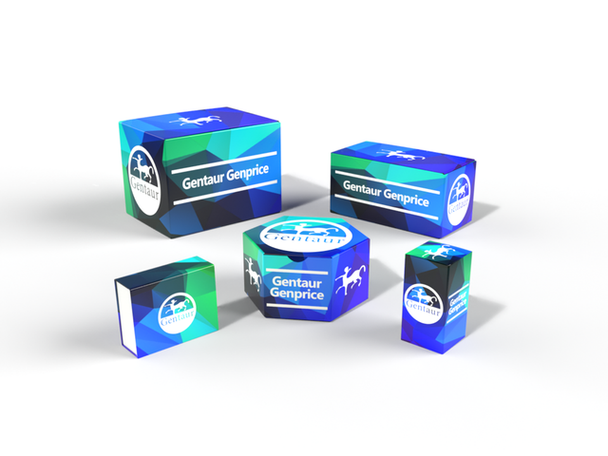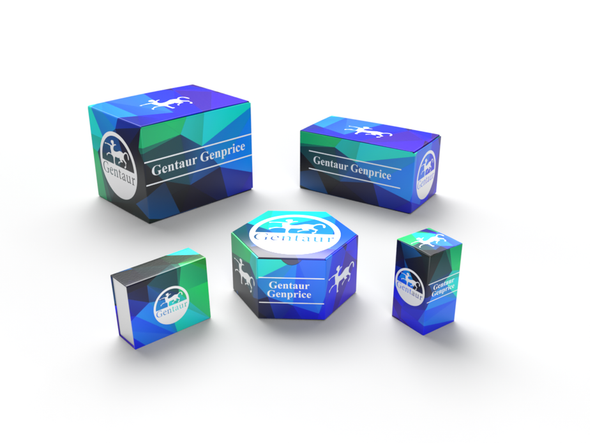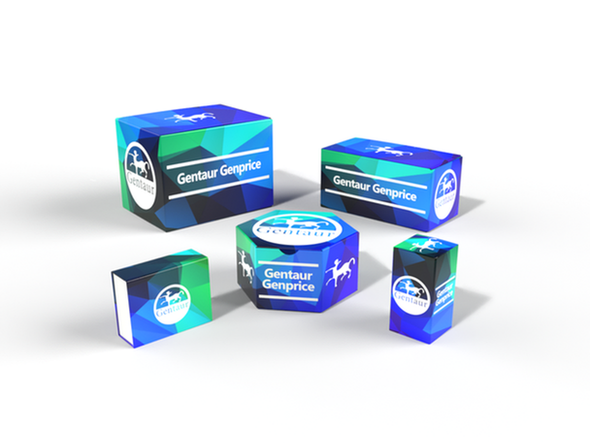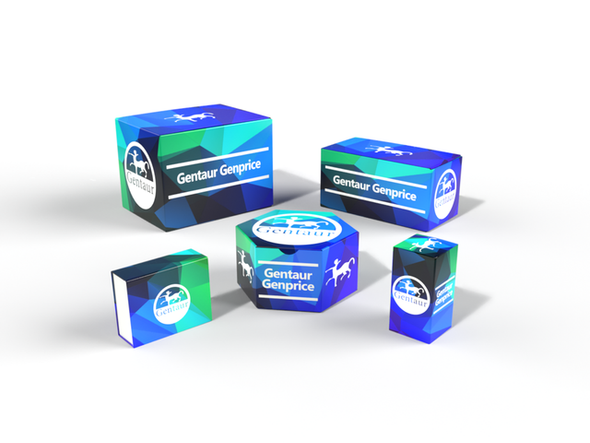749
Mouse Regenerating islet-derived protein 4 (REG4) ELISA Kit | KTE70511
- SKU:
- 749-KTE70511
- Availability:
- Usually ships in 5 working days
Description
Mouse Regenerating islet-derived protein 4 (REG4) ELISA Kit | KTE70511 | Gentaur UK, US & Europe Distribution
Application: This Mouse Regenerating islet-derived protein 4 (REG4) ELISA Kit employs a two-site sandwich ELISA to quantitate REG4 in samples. An antibody specific for REG4 has been pre-coated onto a microplate. Standards and samples are pipetted into the wells and anyREG4 present is bound by the immobilized antibody. After removing any unbound substances, a biotin-conjugated antibody specific for REG4 is added to the wells. After washing, Streptavidin conjugated Horseradish Peroxidase (HRP) is added to the wells. Following a wash to remove any unbound avidin-enzyme reagent, a substrate solution is added to the wells and color develops in proportion to the amount of REG4 bound in the initial step. The color development is stopped and the intensity of the color is measured.
Detection Method: Colorimetric
Conjugate: N/A
Sample Type: Cell culture supernatants#Serum#Plasma#Other biological fluids
Assay Type: Multiple steps standard sandwich ELISA assay with a working time of 3-5 hours. It depends on the experience of the operation person.
Kit Component: • Mouse Regenerating islet-derived protein 4 microplate
• Mouse Regenerating islet-derived protein 4 standard
• Mouse Regenerating islet-derived protein 4 detect antibody
• Streptavidin-HRP
• Standard diluent
• Assay buffer
• HRP substrate
• Stop solution
• Wash buffer
• Plate covers
Features & Benefits: Mouse Regenerating islet-derived protein 4 (REG4) ELISA Kit has high sensitivity and excellent specificity for detection of Mouse REG4. No significant cross-reactivity or interference between Mouse REG4 and analogues was observed.
Calibration Range: Please inquire
Limit Of Detection: Please inquire
Usage Note: • Do not mix components from different kit lots or use reagents beyond the kit expiration date.
• Allow all reagents to warm to room temperature for at least 30 minutes before opening.
• Pre-rinse the pipet tip with reagent, use fresh pipet tips for each sample, standard and reagent to avoid contamination.
• Unused wells must be kept desiccated at 4 °C in the sealed bag provided.
• Mix Thoroughly is very important for the result. It is recommended using low frequency oscillator or slight hand shaking every 10 minutes.
• It is recommended that all samples and standards be assayed in duplicate or triplicate.
Storage Instruction: The unopened kit should be stored at 2 - 8°C. After opening, please store refer to protocols.
Shipping: Gel pack with blue ice.
Precaution The product listed herein is for research use only and is not intended for use in human or clinical diagnosis. Suggested applications of our products are not recommendations to use our products in violation of any patent or as a license. We cannot be responsible for patent infringements or other violations that may occur with the use of this product.
Background: The REG4 gene encodes a deduced 158-amino acid protein with an N-terminal signal peptide of 22 amino acids and a predicted molecular mass of 18.2 kD. REG4 maintains conservation of the 6 cysteine residues present in other known members of the REG family. By Northern blot analysis of intestinal mucosa from 12 individuals with inflammatory bowel disease, Hartupee et al. (2001) identified a 1.1-kb REG4 transcript in all samples. Control specimens had low but detectable expression of REG4. REG4 expression was significantly upregulated by inflammation and tissue injury associated with active Crohn disease and ulcerative colitis. RNA dot-blot analysis showed that most of the tissues expressing REG4 are in the gastrointestinal tract, i.e., colon, small intestine, stomach, and pancreas.
Alternative Names: REG4; GISP; REG-IV; RELP; OTTHUMP00000014031; gastrointestinal secretory protein; regenerating gene type IV
Search name: REG4; GISP; REG-IV; RELP; OTTHUMP00000014031; gastrointestinal secretory protein; regenerating gene type IV
Tag: REG4






